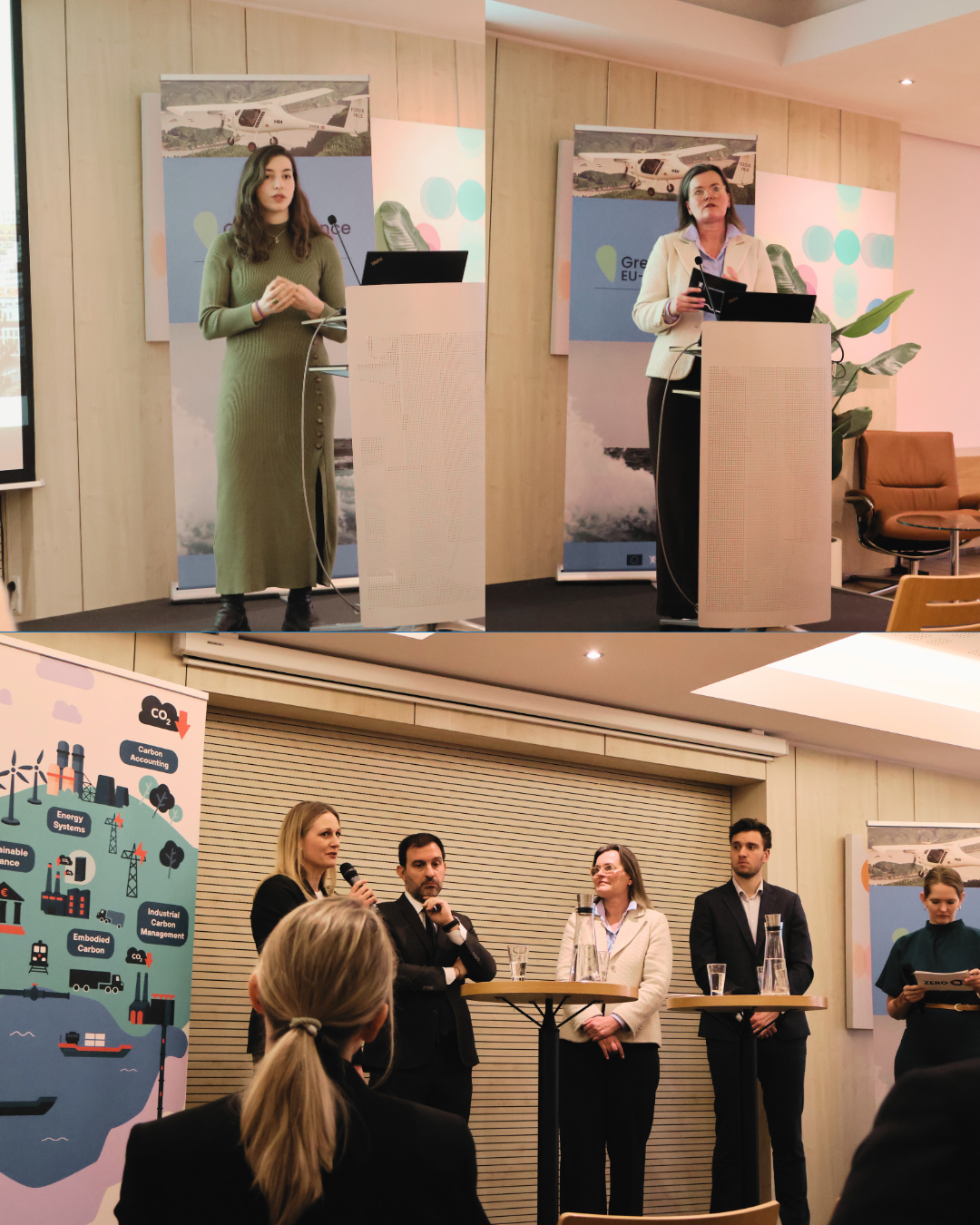
Joint letter – ICC reform and expansion risks diverting ETS Revenues from real climate action
In light of the European Commission’s ongoing considerations to amend the ETS State Aid Guidelines, revising the rules for Indirec...
News

Publish date: June 18, 2009
News
Medvedev proposed during a Wednesday meeting with lawmakers and rights activists a handful of amendments relaxing laws on NGOs brought in during the presidency of Prime Minister Vladimir Putin, but the amendments covered only about a third of Russian NGOs and rights groups said more needed to be done.
Earlier this year Medvedev ordered a working group of parliamentarians and activists to consider laws on NGOs, which were amended for the stricter in 2006.
"The existing regulation on registration is a burden," Medvedev said after announcing he would send draft amendments to parliament, according to Gazeta.ru.
Though many in the human rights community welcomed the change, they were wary of full-scale endorsement of Medvedev’s proposals.
Allison Gill, head of the Moscow branch of the New York-based Human Rights Watch, said the amendments were a start but much more had to be done.
"What they need to do is completely revamp it, what they done here is tinker with it," she said of the NGOs laws.
Ella Pamfilova of the Presidential Council for Civil Society
and Human Rights and a member of the Bellona St. Petersburg’s board of directors was present at the meeting was present for Medvedev’s speech.
She told Medvedev that the human rights community itself was working on a set of amendments to the NGO legislation.
Lyudmila Alekseyeva of the Moscow Helsinki Group was not present for the meeting, but said Medvedev’s proposed amendments were “a step to liberalism” but suggested that the 2006 NGO law be completely abolished.
"However hard they try to improve this law, I’ll keep insisting on its abolition because the law is based on a wholly wrong postulate," Alekseyeva said. "Civil society monitors bureaucracy in all democracies. This law on the other hand offers bureaucracy a leverage for the use against civil society."
Current regulations require organisations to reregister with authorities each year, as well as open their doors to announced and unannounced audits.
Putin’s Kremlin originally defended new rules for NGOs as necessary to restrict terrorists, money launderers and spies using NGO status as cover.
But rights activists said the 2006 laws were designed to hinder their work because it forced NGOs to wade through far more paperwork and enabled the authorities to close down organisations.
The requirements have put many innocent organisations in the hot seat – including St. Petersburg’s Bellona offices – as they scramble to prove the destination of every kopek they have spent in on their programme activities.
The auditing procedure itself is enough to shut down an NGO for several weeks, as the entire staff is redirected in its activities or shut out of their offices. Several have been shut down for arbitrary reasons, such as improperly binding their audit papers.
"No more,” said Medvedev in his appearance before the Duma and rights groups representatives. “A notice to state structures that the organization intends to continue will suffice."
New amendments from Medvedev will restrict the bulk of paperwork state structures are allowed to ask of NGOs. The period from submission of documentation to approval to operate will also be reduced from a month to 14 days. And mistakes will be returned to NGOs to be corrected immediately, rather than the current procedure of denying organisations permission to operate until mistakes are corrected, said Gazata.ru.
The draft amendments to the NGO laws will also cover some aspects of laws relative to those Russian NGOs that do not require a membership fee – around a third of all Russian NGOs.
The amendments forwarded to the Duma do not, however, apply to foreign non-governmental organizations operating in Russia. Their domestic counterparts promise to broach the issue before long
Since becoming president a year ago, Medvedev has often spoken about encouraging freedom of speech and clamping down on corruption. Critics, though, have said his actions often failed to match his words.
Many in the human rights community and political opposition have not been able to fathom Medvedev’s apparent efforts to cozy up to them.
When Anistasiya Baburova, a 25-year-old reporter with Novaya Gazeta, Russia’s most strident opposition newspaper, was slain alongside human rights lawyer Stanislav Markelov, 34, in broad daylight shooting in central Moscow in January, Medvedev paid a visit to Novaya Gazeta’s editor, Dmitry Muratov, to pay his condolences.
Medvedev also praised the paper’s courage for continuing to publish, in spite of the fact that it has lost five reporters under mysterious circumstances over the last 10 years, the most prominent the 2006 slaying of Anna Politkovskaya – Russia’s most vociferous critic of the Kremlin’s atrocities in Chechnya.
None of the cases has been solved, and the closest prosecutors have come to solving the Politkovskaya case was an across the board acquittal by a jury of the suspects in a trial earlier this year. Politician, lawyers and rights actvists alike excoriated the work of the prosecutors in the case, who had been lazy in assembling their case for the jury, which led to the not guilty verdict. Prosecutors promise to appeal, and Medvedev himself deplored he verdict.
Nearly parallel to his visit to Novaya Gazeta, Medvedev reinstated The President’s Council for the Promotion of the Institutes of Civil Society and Human Rights, which Putin had mothballed in 2004.
Bellona’s Alexander Nikitin said Medvedev’s nuzzling of Putin government opponents could be serving one of two purposes.
“It is entirely possible that in the heat of (financial) crisis public opinion and even support are necessary to Medvedev, but it is not yet clear for what, “said Nikitin, who heads Bellona’s St. Petersburg offices.
“Maybe it will become necessary to change something in the government and set forth someone against Putin’s PR. On the other hand, it might be necessary to calm the people with the help of the Presidential Council in defence of Putin’s government,” said Nikitin.
“In either case, I think that Medvedev is warming up the Council and has moved himself closer to opposition media for either of these motivations.”

In light of the European Commission’s ongoing considerations to amend the ETS State Aid Guidelines, revising the rules for Indirec...

Three main asks: Set robust low-carbon definitions as soon as possible: Without clear thresholds, non-price criteria in procurement lack the dec...

On 24 February 2025, Bellona Europa co-hosted a breakfast seminar at Norway House in Brussels alongside ZERO and the Mission of Norway to the EU, bringing together policymakers, manufacturers, and procurement practitioners around a single conviction: European cities hold a decisive and largely untapped lever for decarbonising construction. With the revision of the EU Public Procurement Directives on the horizon, the moment to use it is now.

Opening remarks and future of EU CRCF Market Christian Holzleitner, Head of Unit for Land Economy and Carbon Removals&nb...

Together with six NGOs and five industry partners, Bellona Europa signed a joint letter on the RFNBO Delegated Act, reiterating that now is not the t...
Get our latest news